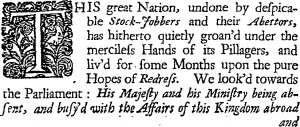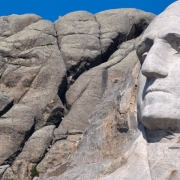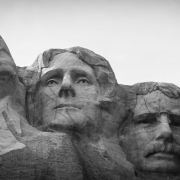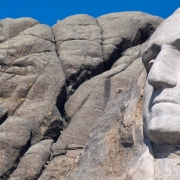The 2020 election campaign is different than earlier iterations in several ways. Many of those have to do with COVID-19 and the extraordinary extent of political machinations today. But more important is that we have moved so far from the bounds of what America’s founders intended.
In fact, that statement applies more than half a century before our founding. The reason is that among the greatest influences on colonial political thought was Cato’s Letters, in which John Trenchard and Robert Gordon echoed and expanded John Locke’s views in England in the early 1720s. According to Ronald Hamowy, “its arguments against oppressive government and in support of the splendors of freedom were quoted constantly and its authors were regarded as the country’s most eloquent opponents of despotism … [and] frequently served as the basis of the American response to the whole range of depredations under which the colonies suffered.”
Of particular note with regard to our upcoming election are Cato’s Letters 69 and 70, which addressed the fiercely fought British election of 1722. They remind us how far we have moved from what George Washington described as “the sacred fire of liberty … staked on the experiment entrusted to the hands of the American people,” making their insights worth reconsideration for November, as we vote just two days before the 300th anniversary of the first of Catos’ Letters:
Many [are] tired, sick, and ashamed of party-animosities, and of quarreling … to gratify the pride, the ambition, and rapine of those who only sell and betray them. It is yet in our power to save ourselves.
Let us not again be deluded with false promises and deceitful assurances; but let us judge what men will do by what they have done.
Throw your choice upon such who will neither buy you, nor sell you.
In corrupt administrations, your superiors of all kinds make bargains, and pursue ends at the public expense … making the people poor.
Think what you are doing, while you are raising hue and cry after men who will betray you … for a poor momentary share of their infamous plunder.
Know, Gentlemen, how you are used … by those who think it worth their time to flatter you … It depends now upon yourselves … show that you are men.
Liberty: You are our Alpha and Omega, our first and last resource; and when your virtue is gone, all is gone.
You may choose whether you will be freemen or vassals; whether you will spend your own money and estates, or let others worse than you spend them for you.
You are born to liberty … preserve it … your governors have every right to protect and defend you, none to injure and oppress you … But it depends upon yourselves alone to make these rights of yours … of use to you.
All men desire naturally riches and power; almost all men will take every method, just or unjust, to attain them. Hence the difficulty of governing men.
While men are men, ambition, avarice, and vanity, and other passions, will govern their actions; in spite of all equity and reason, they will be ever usurping, or attempting to usurp, upon the liberty and fortunes of one another … Dominion will always desire increase, and property always to preserve itself; and these opposite views and interests will be causing a perpetual struggle: But by this struggle liberty is preserved.
The interest of the body of the people is to keep people from oppression, and their magistrates from changing into plunderers.
Nor can there be any security in the fidelity of one … who can find it more his interest to betray you than to serve you faithfully.
Choose not therefore such who are likely to truck away your liberties … and to sell you to those against whom it is their duty to defend you.
This is not a dispute about dreams or speculations, which affect not your property; but it is a dispute whether you shall have any property, which these wretches throw away.
Do you not know how much you are at the mercy of [politicians’] honesty … whether you are to be freemen or slaves … Would you allow the common laws of neighborhood to such as steal or plunder your goods, rob you of your money, seize your houses, drive you from your possessions, enslave your persons, and starve your families? No, sure, you would not.
Consider what you are about … We are all in your hands, and so at present are your representatives; but very quickly the scene will be shifted, and both you and we will be in theirs … think what they are like to be, when they are no longer under your eye … These humble creatures, who now bow down before you, will soon look down upon you.
While Cato’s Letters 69 and 70 focused on the 1722 British election, they also provide a useful civics primer for the principles American voters concerned with the progressive evisceration of liberty should consider this November, nearly three centuries later. In particular, we should ask whether we are defending the sacred fire of liberty or further abandoning it.
Gary M. Galles is a professor of economics at Pepperdine University. This article appeared at issuesinsights.com










